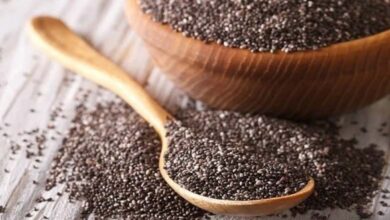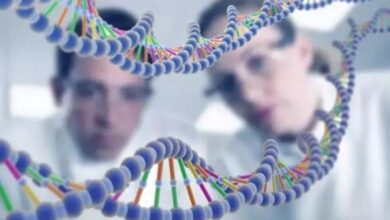Mushroom Coffee: A Health Revolution or Just a Marketing Gimmick?

In recent years, mushroom coffee has topped the list of functional beverages, widely promoted as a healthy alternative to traditional coffee. It is said to enhance cognitive functions, support the immune system, and offer a low-caffeine option for coffee lovers.
But are these claims backed by science, or is it just a marketing campaign?
-
Matcha or Coffee… Which is More Beneficial for Health?
-
Used Coffee Grounds May Be a “Good” Solution for Alzheimer’s
What is Mushroom Coffee?
Mushroom coffee is made from a blend of ground coffee beans and extracts from medicinal mushrooms such as lion’s mane, chaga, reishi, and cordyceps. These mushrooms are known for their potential health benefits, as they are dried, ground, and extracted to obtain active compounds like polysaccharides, triterpenoids, and antioxidants.
While this drink contains less caffeine than regular coffee, it is not completely caffeine-free, as coffee beans remain part of the blend. This provides moderate energy while reducing the effects of stress and sleep disturbances.
Brain and Memory Enhancement
Studies have shown that lion’s mane mushroom contains compounds that stimulate the production of nerve growth factor (NGF), a protein essential for nerve cell health. Research conducted on animals suggests that this mushroom may improve cognitive functions and support nerve regeneration.
A 2008 Japanese study also found significant improvements in individuals with mild cognitive impairment after consuming lion’s mane for 16 weeks. However, further human studies are needed.
-
Study: Know Your Personality Based on Your Coffee Choice
-
The Best Time to Drink a Cup of Coffee in the Morning
Immune System Boost and Anti-Inflammatory Effects
Reishi and chaga mushrooms contain beta-glucans, which enhance immune system response. Preclinical studies suggest that these compounds activate immune cells, helping the body fight infections.
Chaga is also known for its high concentration of antioxidants, which reduce oxidative stress and inflammation. However, clinical research on these effects remains limited.
-
Coffee and chocolate at risk: How does it relate to declining insect populations?
-
“Coffee: One of Ethiopia’s Main Sources of National Income
Energy Boost and Physical Performance Enhancement
Cordyceps mushroom is known for its ability to improve endurance and reduce fatigue, thanks to cordycepin, a compound believed to enhance adenosine triphosphate (ATP) production, the primary source of cellular energy. Some studies suggest it may improve athletic performance, though more scientific evidence is needed.
Between Scientific Hype and Reality
Contrary to popular belief, mushroom coffee is not entirely caffeine-free, and its caffeine content varies depending on the product. Consumers are advised to check labels to determine the actual caffeine amount. Additionally, it should not be considered a medical treatment but rather a dietary supplement as part of a balanced lifestyle.
Product quality is also a key factor, as the effectiveness of mushroom coffee depends on the source of the mushrooms and the extraction methods used. Dual extraction (using both water and alcohol) is the most effective way to obtain beneficial compounds.
Potential Risks
While generally safe for most people, mushroom coffee may cause digestive issues or allergic reactions in some individuals.
-
How Chocolate Can Help You Lower Blood Pressure
-
Study: Espresso Delays Facial Aging and Skin Wrinkles
Medicinal mushrooms can also interact with certain medications, such as anticoagulants and diabetes treatments. Rare cases of liver toxicity have been reported with excessive reishi consumption, emphasizing the importance of moderation.
Experts suggest that mushroom coffee may be a suitable option for those looking to reduce caffeine intake and incorporate functional foods into their diet, but it is not a miracle cure.
It is advisable to consult a healthcare professional before integrating it into a daily routine, especially for individuals with chronic health conditions.












